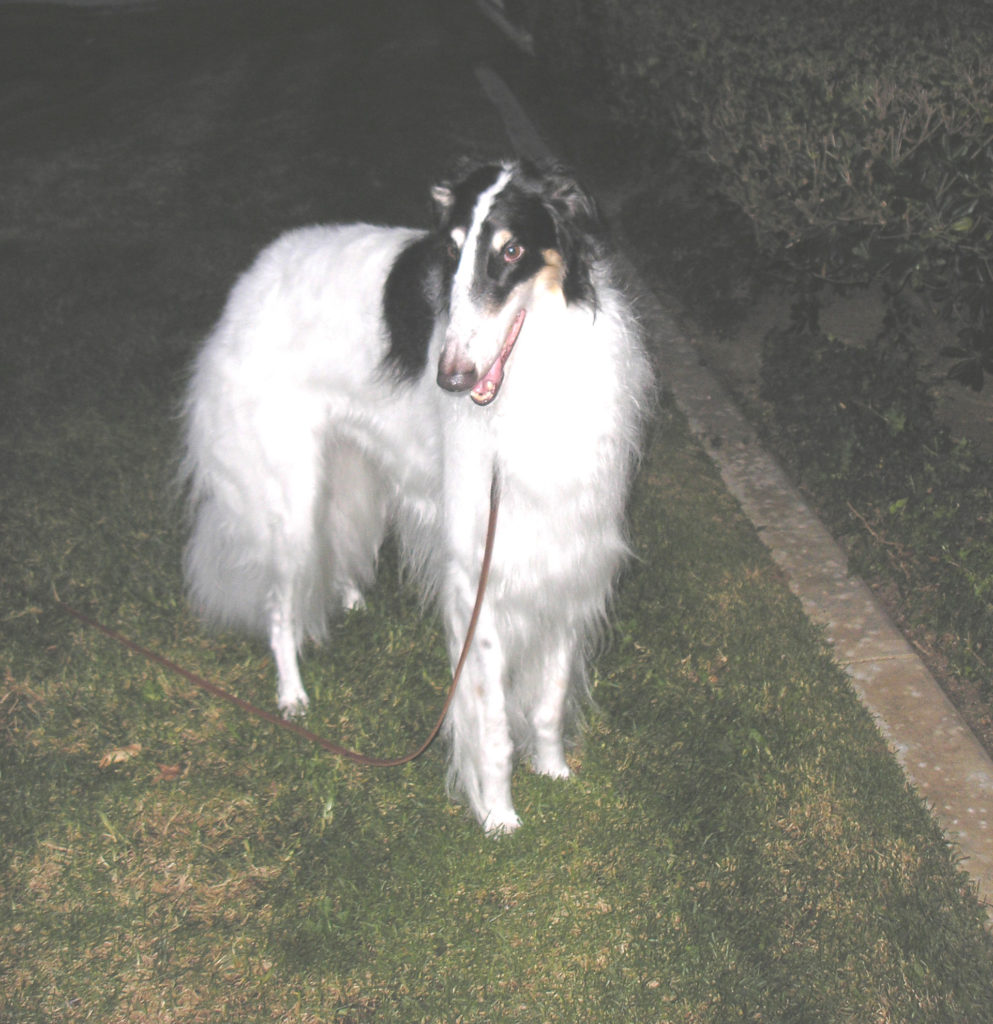The Borzoi was developed in Russia to hunt down wolves, and as such, the breed possesses speed and power in their graceful frames. Despite being a giant breed, adults are surprisingly light on their feet and extremely well-mannered in the house. Puppies, on the other hand, are more destructive and can take a long time to grow into the dignified adults they will eventually become. Softly affectionate, they are gentle and loyal to their families and slightly reserved with strangers.
These Russian sighthounds are extremely quiet – while they are physically able to bark, they do so very sparingly. This makes them great house companions, but also means that they do a poor job at being watchdogs. A home intruder might never even know that a dog is in the house. Furthermore, if someone were to break in, many Borzoi would happily welcome the stranger into the home, before going back to bed. Territoriality is not a strong trait in this breed.
Exercise is very important – particularly running. Borzoi were bred to sprint very fast for short periods of time, and they need to be able to do this at least once a day. A fenced yard with enough room to run is a necessity. And yes… fencing is 100% necessary. High prey drive combined with high speed means that this breed is also at high risk of dashing away and getting hit by a car. A good owner will always make sure their Borzoi is secure by fence, or by leash when out on a walk. Keeping them safe is the most notable part of exercising a Borzoi – they don’t particularly need a lot of it, it just needs to be done with care. As long as that need is satisfied, the breed is extremely low-key inside of the house and doesn’t have a ton of energy. They are known for being fantastic couch potatoes!
The Borzoi is very independent, and prefers to make his own decisions rather than listen to his owner. This can lead to stubbornness in some dogs. It is nonetheless important to give him structure through obedience training. While not always easy to train, patience and persistence will go a long way. Most Borzoi are actually quite smart and can really learn to love training if the trainer knows how to make it enjoyable. Motivation is key, as well as keeping the sessions short and interesting for the dog. 
Borzoi don’t tend to eat vast quantities of food like some other giant breed dogs due to their lower energy. It is important, however, to remember that the breed is prone to bloat. Bloat is a life-threatening emergency in which the stomach fills with air and then flips around, trapping the air inside. While there is no complete preventative for bloat, it is recommended that dogs are not allowed to exercise right before or after they eat. This cuts down the chances of bloat.
As might be guessed from their fairly long coats, the Borzoi does shed – some quite excessively! Brushing the coat out regularly will help, but will not stop the problem completely. A good brushing and combing should be done two or three times a week, which will also help to stop mats from forming. A coat that has been neglected can quickly turn into a very tangled mess which will be painful to remove from the dog. A good grooming routine needs to be put into place and strictly followed so that does not happen.
Borzoi can get along with children, but do best with older kids rather than younger. They are very sensitive and cannot tolerate rough treatment of any sort. When it comes to other pets, they generally tend to do well although some can have problems with cats and smaller dogs. While some Borzoi never have a problem, others (those that have extremely high prey drives) see these smaller creatures as prey. Still other Borzoi are ok as long as the cat/tiny dog are inside, but as soon as the other pet goes outside and starts rushing around, that prey drive kicks in.
